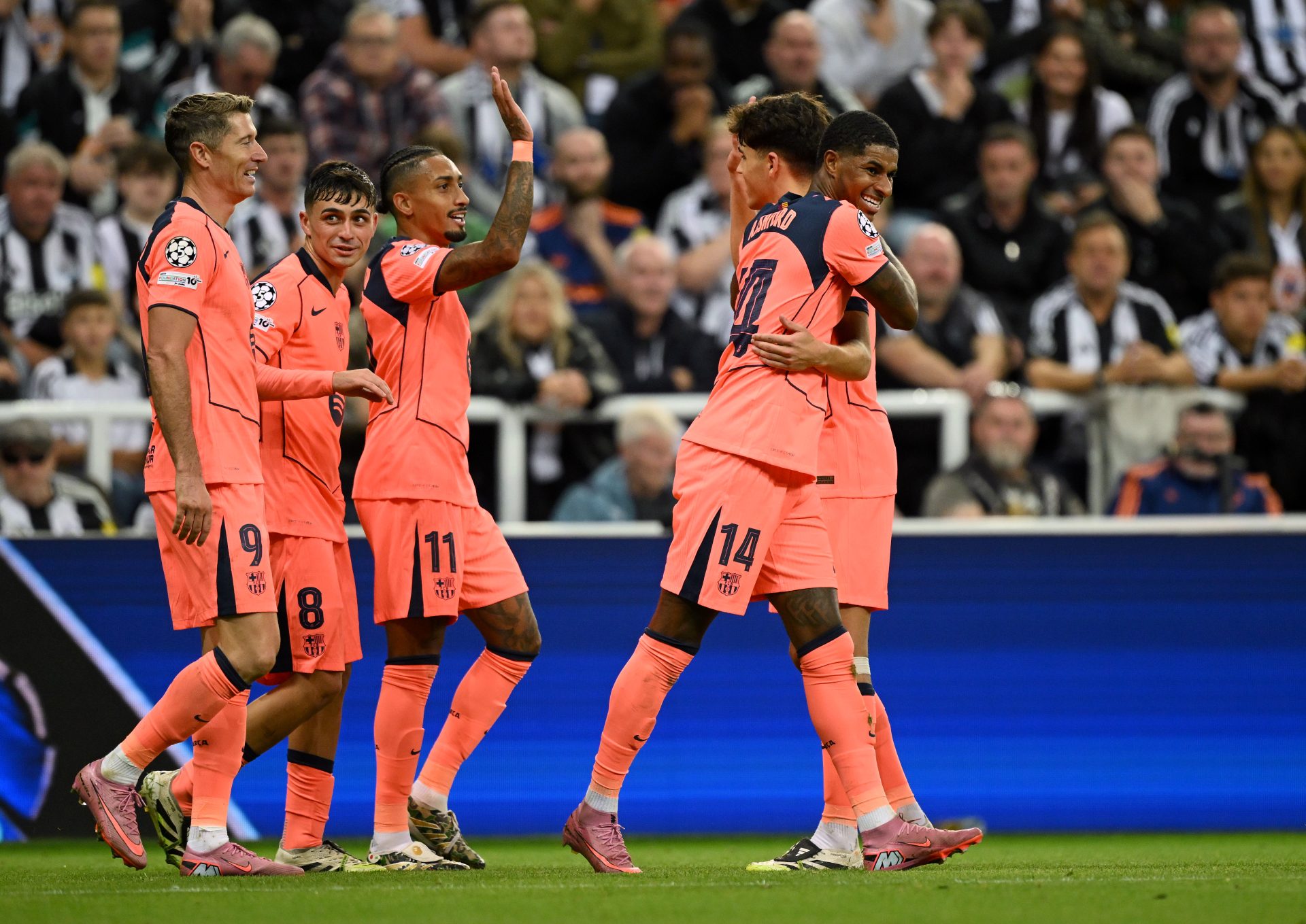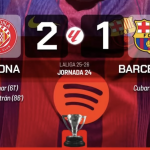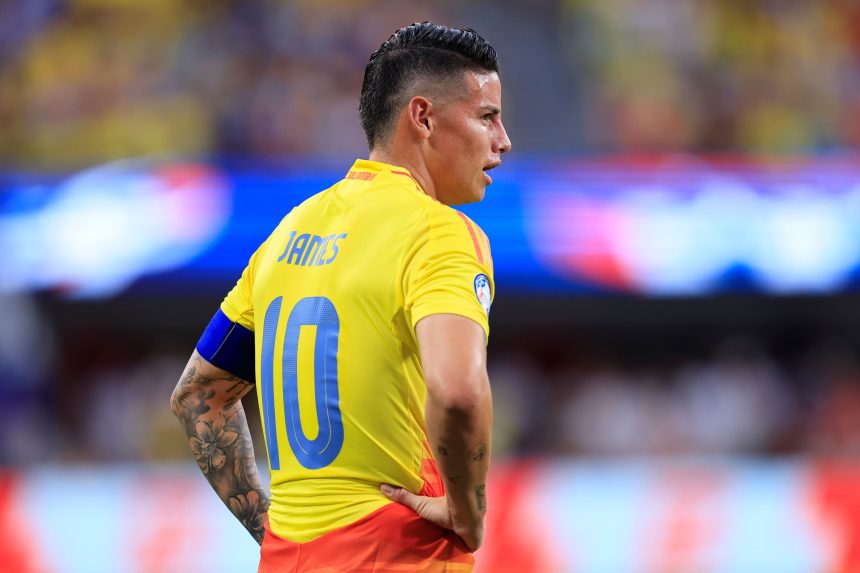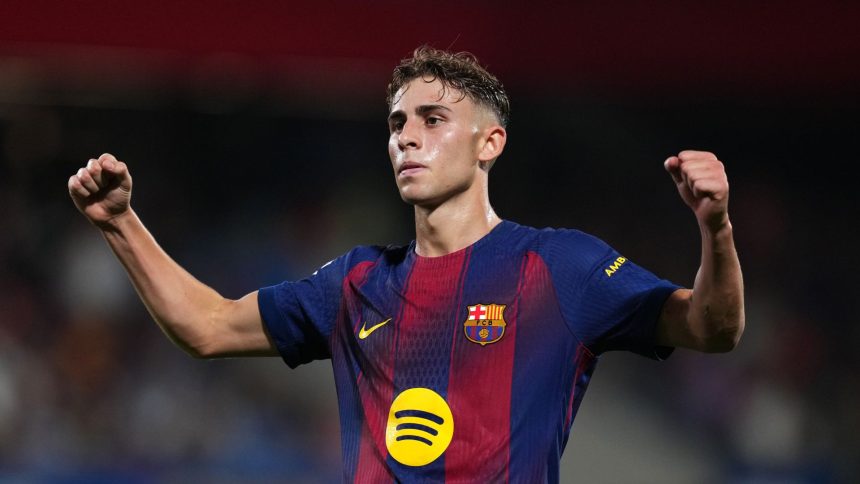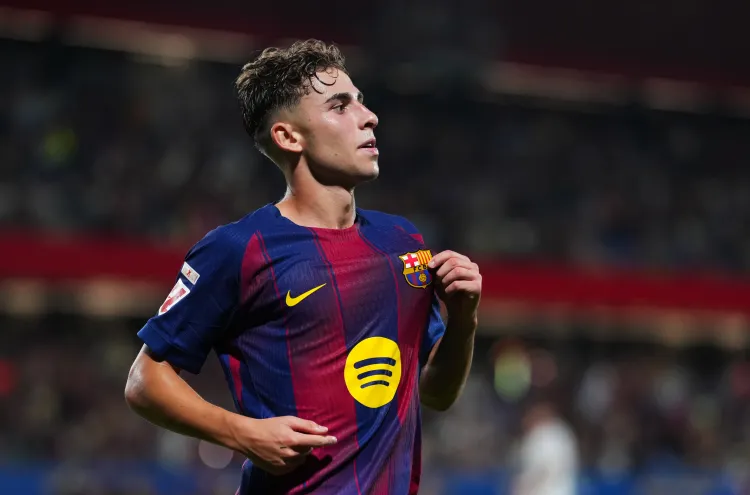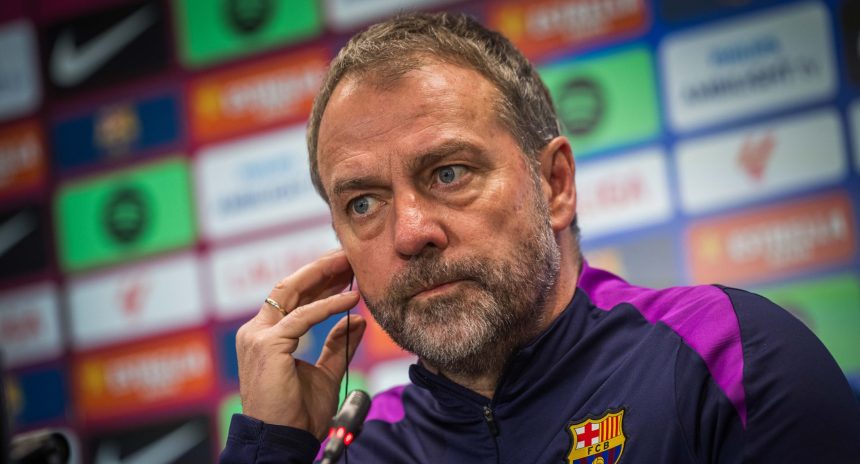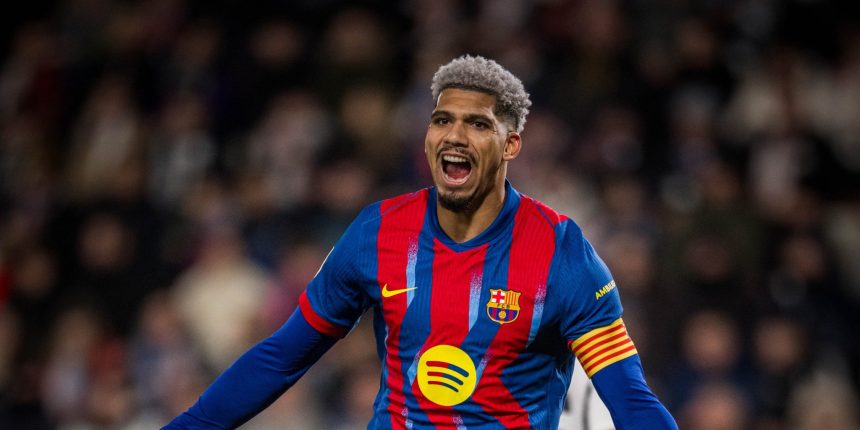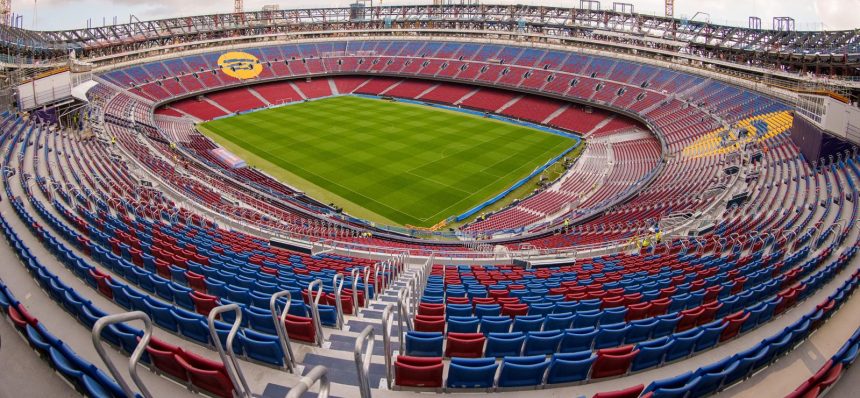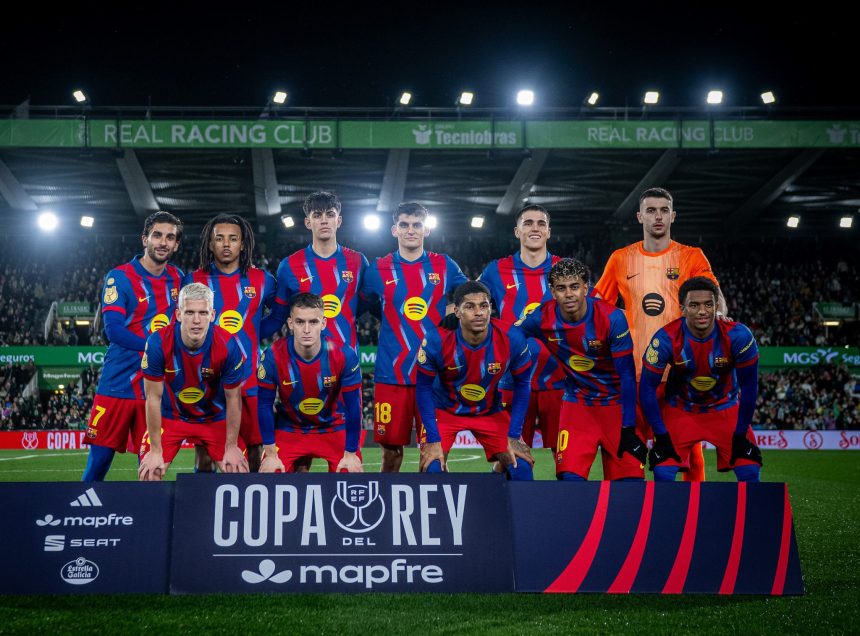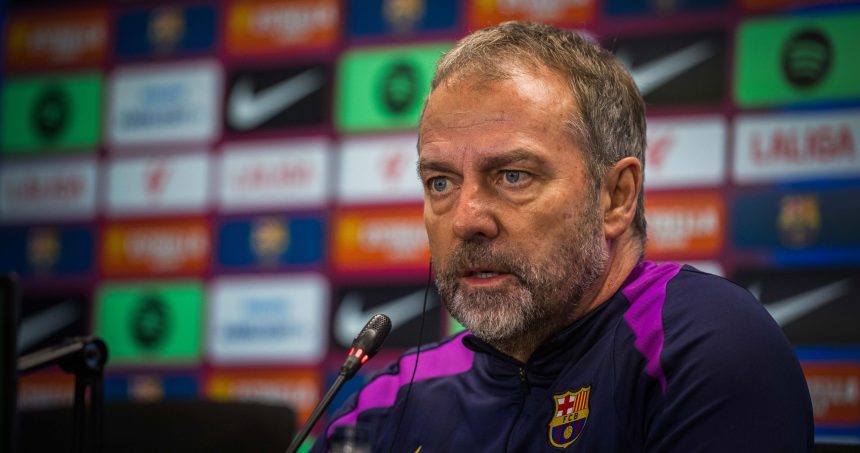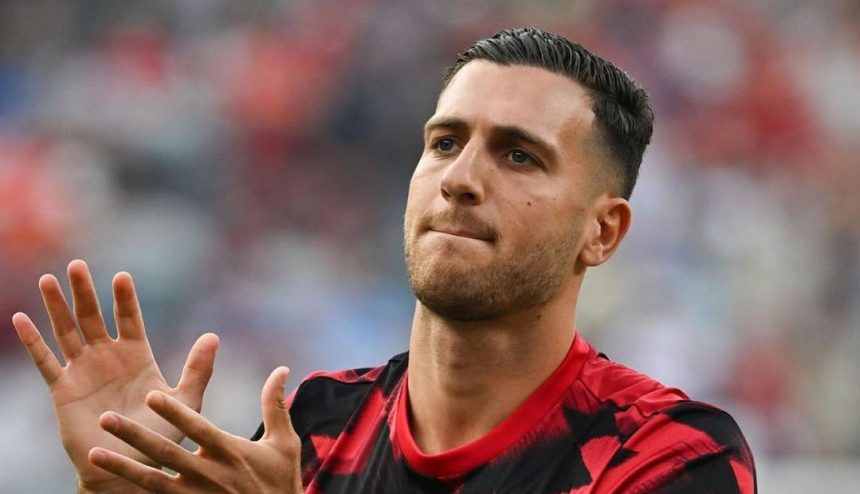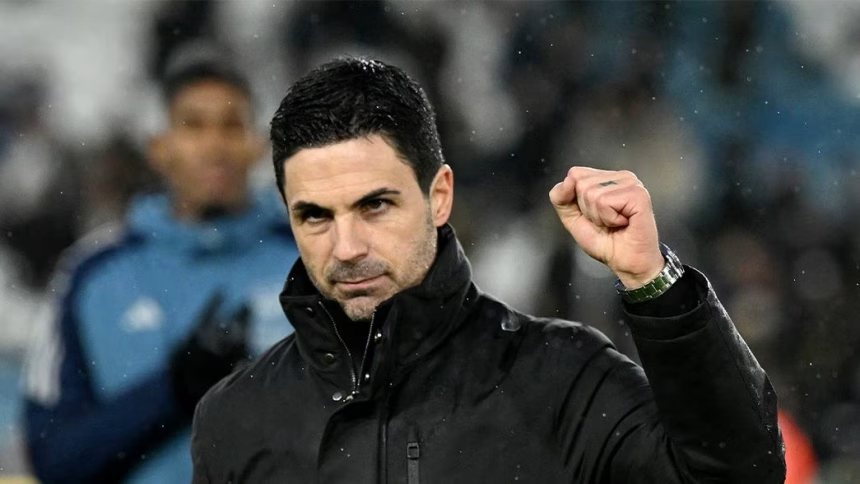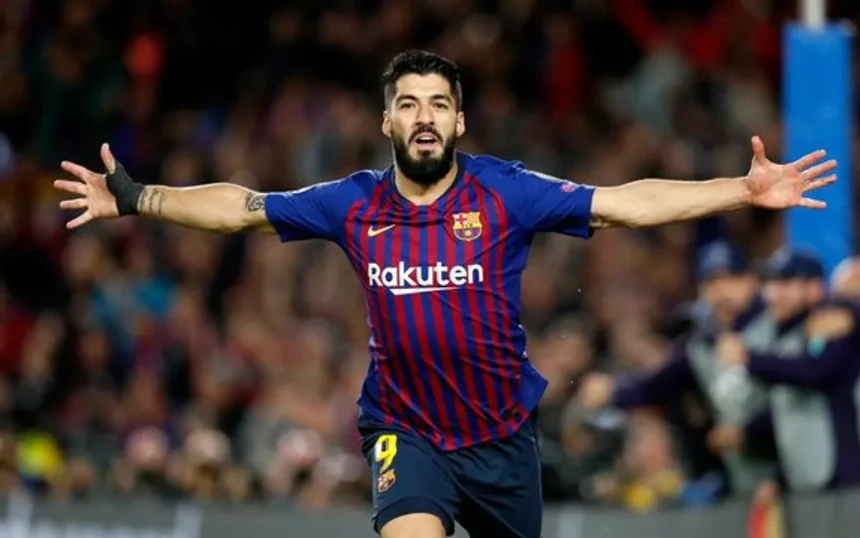Barcelona’s summer transfer business raised more than a few eyebrows across Europe. For a club known for grand statements in the market, their decision not to pursue a traditional No.9 this season looked, at first glance, like a gamble. Yet, as the months unfold, the question lingers amongst supporters of the club, is this a good strategic move or a dangerous oversight that could derail their season? Softfootball reports.
The Catalan giants entered the campaign with Robert Lewandowski still leading the line, though now in the later stages of his career. At 36, the Polish striker remains one of the game’s great professionals, but even his top supporters know that age is catching up.
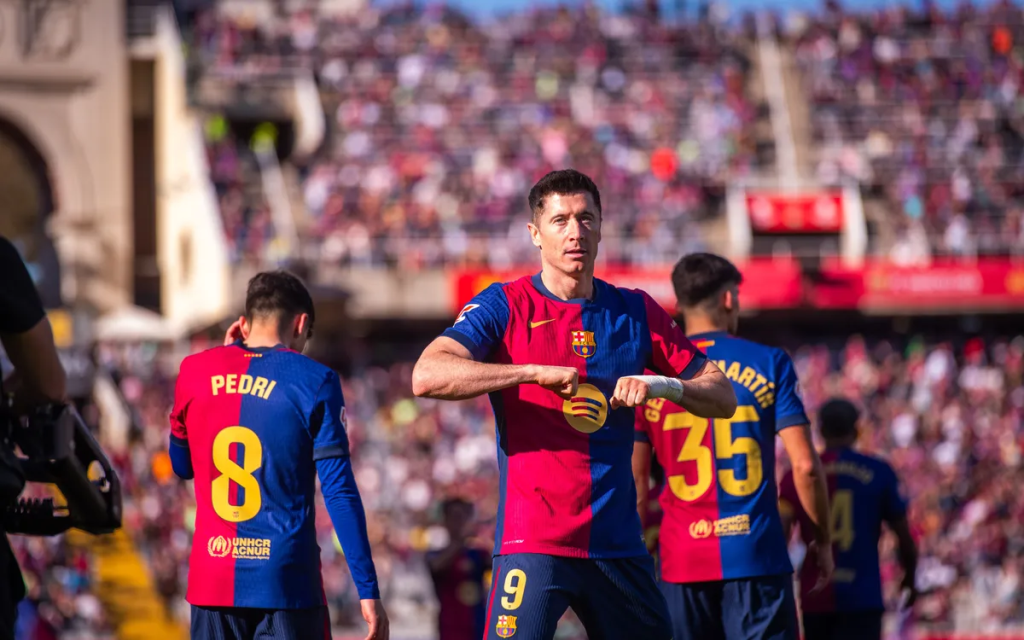
Despite that, Barcelona opted against signing a new and natural centre-forward. Instead, the club-led by sporting director Deco has chosen to place faith in internal flexibility, trusting that forwards like Ferran Torres, Dani olmo, and the on-loan forward from Manchester United Marcus Rashford could share the goalscoring burden.
The decision was understandable, at least on paper, was clear enough. Financially, Barcelona are still navigating muddy waters, and spending on another big-name striker could have been unsustainable. Tactically, Softfootball understands that new head coach Hansi Flick has always preferred mobility and pressing up front over a single focal point.
Under his system, every attacker is expected to press, rotate, and create rather than merely just score goals. In that sense, the decision aligned with a modern, flexible approach to attacking football.
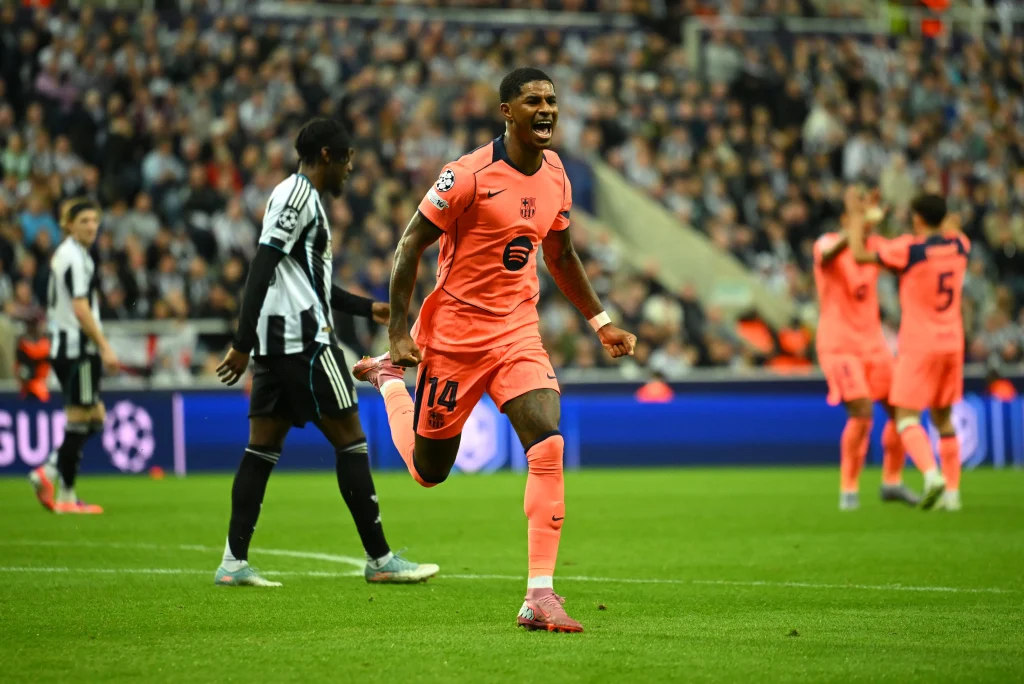
And yet, results have begun to test the patience of even the most optimistic fans. Barcelona have endured a tough few weeks, suffering back-to-back defeats to PSG in the UEFA Champions League, followed by a humbling 4-1 thrashing at the hands of Sevilla before the International break .
Rashford’s arrival from Manchester United was supposed to offer short-term relief. The Englishman isn’t a pure No.9, but his pace, movement, and knack for finding space have given Barcelona a new dimension. His brace in the 2–1 Champions League win over Newcastle United remains one of the season’s bright spots, a reminder that he can be decisive on the biggest nights.
In Flick’s system, Rashford thrives when allowed to drift wide and attack from the left, though his finishing touch has occasionally masked the team’s deeper creative problems.
Meanwhile, Barcelona via their official X handle, have recognized Marcus Rashford impact especially after having a fantastic September for the club, the Englishman has scored 3 goals and 4 assists his last seven games, the team posted a highlight of some of his goals for the club in Laliga, watch below;
📊 Rashford in his last 7 games:
— FC Barcelona (@FCBarcelona) October 7, 2025
3 goals ⚽️
4 assists 🅰️
𝐂𝐨𝐧𝐬𝐢𝐬𝐭𝐞𝐧𝐭 𝐢𝐦𝐩𝐚𝐜𝐭.#LaLigaHighlights pic.twitter.com/b14ZvwAITt
Still, the question persists which is can a club with Barcelona’s ambitions truly rely on a makeshift approach up front?.The loss of efficiency in front of goal, especially in Europe, suggests otherwise. Against sides like PSG, small moments decide entire season. The French champions had Gonçalo Ramos, a natural striker and finisher who converted their only big chance late on. Barcelona, despite dominating possession, could not find a comparable figure to make their superiority count.
Some fans may point out that Lewandowski’s experience remains invaluable, and that Rashford’s loan provides an injection of energy and new dimension. But the evidence of the past few weeks shows that this blend is far from a long-term solution.
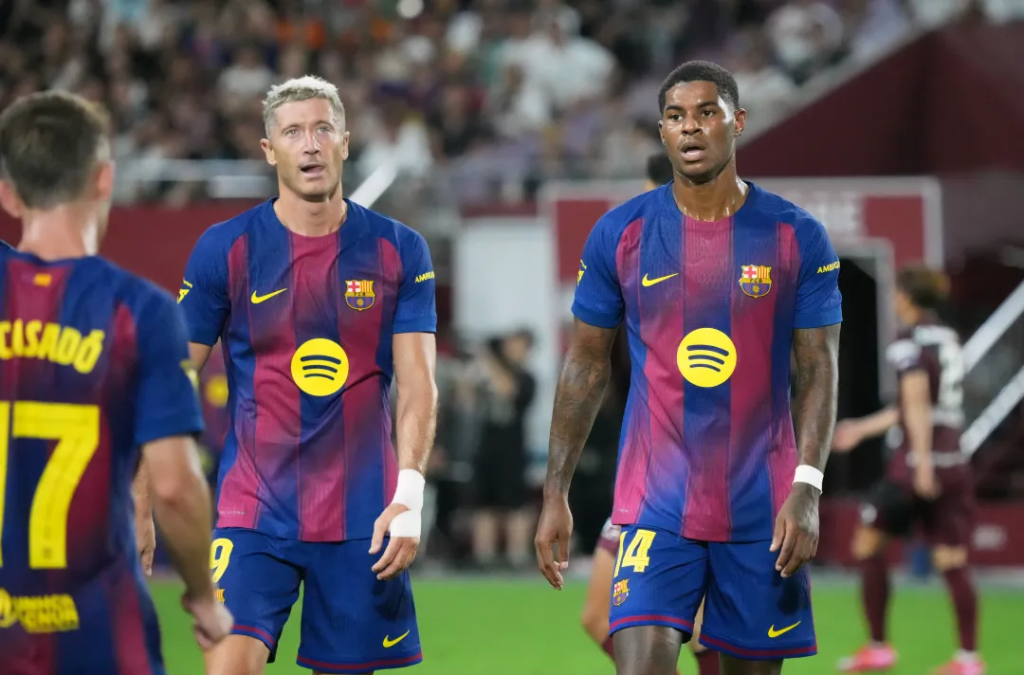
Without a consistent, physically imposing striker capable of occupying defenders and converting half-chances, Barcelona risk being too predictable when facing deep and organized backlines. Their attack flows beautifully at times, yet without a finisher to tie it all together, too many promising chances may go begging.
To their credit, the decision not to sign a striker wasn’t entirely reckless. Financial prudence matters, and Flick’s footballing philosophy emphasizes versatility and cohesion over positional rigidity. There’s also a belief within the club that the current crop of forwards can collectively deliver what one star No.9 might provide alone. That idea isn’t without merit , but it demands near-perfect execution and consistency across the frontline. The recent losses suggest they aren’t quite there yet.

For now, Barcelona’s attack revolves around adaptability. Flick is trying to build a side capable of pressing high, interchanging roles, and overwhelming opponents with fluid movement rather than static positioning. Rashford’s presence fits that narrative perfectly, a quick, aggressive runner who can stretch defenses and strike on the counter. Yet, if Lewandowski suffers another injury spell or his form dips, the absence of a natural replacement could become a season-defining loopholes.
In truth, this is a calculated risk. Barcelona’s refusal to chase a traditional striker is both a reflection of their financial reality and could also be a statement of tactical intent. They want to build a team that wins through ideas, not just individual firepower. The problem is that football, especially at the highest level, often punishes ideas. Style points don’t count when they are not resulting into wins .
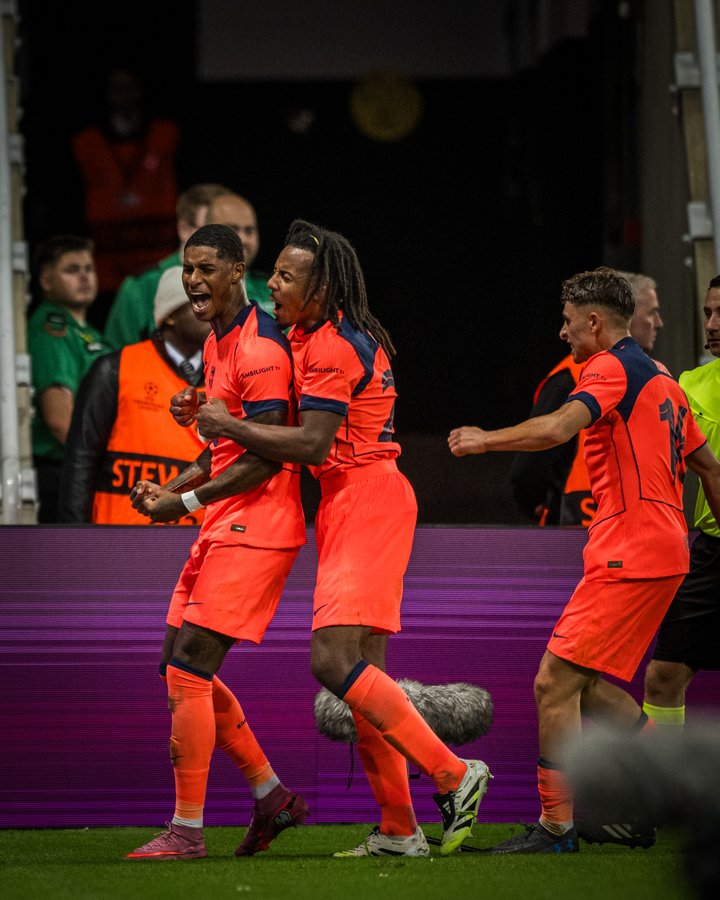
As things stand, Barcelona’s strategy is defensible but has some loopholes. It looks smart when Rashford scores and Flick’s fluid attack clicks into place. But it looks naive when the team collapses under pressure, as seen against PSG and Sevilla. In the end, the wisdom of this decision will be judged not in press conferences or tactical style of play, but in trophies won at the end of the season.
If Barcelona rediscover their rhythm, Rashford continues his form, and Flick’s system continues to gel together, history might view this decision as brilliant. But if the goals dry up and the team falters again in Europe, the summer’s “no-No.9” policy will be remembered not as brave but as a gamble gone terribly wrong.


